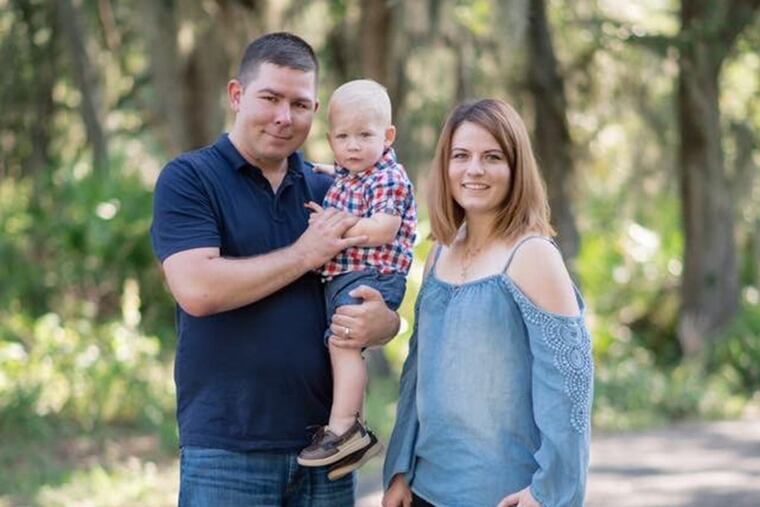Gene therapy shows promise against brain cancer in early testing
An experimental gene therapy that turns brain tumor cells into tiny chemotherapy factories may improve survival for patients with recurrent glioblastoma, one of the deadliest of all cancers, according to data presented Friday at a scientific meeting in Philadelphia.

An experimental gene therapy that turns brain tumor cells into tiny chemotherapy factories may improve survival for patients with recurrent glioblastoma, one of the deadliest of cancers, according to data presented Friday at a scientific meeting in Philadelphia.
The two-part therapy, Toca 511 and Toca FC, was tested at multiple hospitals in 56 patients whose brain cancer returned despite surgery, radiation, and chemotherapy. More than a quarter were alive three years later — unusually long survival for this disease. Five patients who are still alive show no evidence of cancer.
"Usually, median survival for recurrent patients is eight or nine months," Clark Chen, chief of neurosurgery at the University of Minnesota Medical School, said in an interview before Friday's presentation. "This has never been seen before."
University of Pennsylvania neurosurgeon Donald M. O'Rourke, who is researching an immune-boosting T-cell therapy for brain cancer, cautioned that the Toca study had no comparison group and that the treated patients were carefully selected for the early trial. Not only were they relatively young, but most were functioning normally despite intensive treatment and progressive disease, based on a journal article published last year.
In addition, the patients' recurrent tumors had to be treated with surgery before they got the Toca regimen. Only a minority of glioma patients are candidates for more surgery after the cancer returns, as it inevitably does.
"I'm not totally excited by this," O'Rourke said. "There's a selection bias here."
Greg Labancz, 28, of Ruskin, Fla., feels fortunate to have been selected. Shortly after he married, he was diagnosed with anaplastic astrocytoma, an incurable brain malignancy that tends to progress to glioblastoma. When it recurred, his oncologist suggested the Toca study.
Now, four years later, Labancz has a 2-year-old son, works for an industrial glass company, and continues to take Toca FC, the pill part of the regimen. His brain scans show that the cancer, while detectable, is stable.
"If you can't eradicate it, do the next best thing," Labancz said. "If I have to take this the rest of my life, I'm fine with that. I really don't have any side effects."
The therapy is being developed by Tocagen of San Diego, Calif. The results from initial human testing were chosen to be highlighted at this weekend's international cancer therapeutics conference held by the Philadelphia-based American Association for Cancer Research, the National Cancer Institute, and a European cancer research organization. The testing was what is known as a Phase 1 trial; although the U.S. Food and Drug Administration is letting the company expedite ongoing trials designed to show safety and effectiveness, final approval is likely years away.
The first part of the regimen, Toca 511, is a bioengineered virus that is injected into the brain cavity left after the recurrent tumor is surgically removed. The virus selectively infects any remaining brain cancer cells and inserts a gene for an enzyme, thus hijacking the cancer cells to make that enzyme.
About six weeks later, the patient begins taking the pill, Toca FC, which reacts with the enzyme to produce a cell-killing drug called 5-fluorouracil, or 5-FU.
5-FU has long been injected into the bloodstream to treat many types of cancer, but like most chemotherapies, it can't adequately penetrate the brain's natural protective cell barrier. Toca overcomes this obstacle by producing the drug within the brain — in effect, turning brain cancer cells into suicide factories.
Research suggests this process also kills certain disease-fighting immune cells that glioma suppresses. That, in turn, unleashes other parts of the patient's immune system to recognize and attack the cancer.
"It's a combination gene therapy and immune therapy, so I think that makes it unique," said Chen, who is a Tocagen consultant.
In the evolving field of cellular therapeutics, experts debate how to define gene and immune therapies – terms that have become marketing buzzwords for biotech and pharmaceutical firms.
The Toca regimen "really isn't gene therapy," said O'Rourke at Penn. "In our view, gene therapy targets a mutation or set of mutations."
Amid the debate, many clinical trials are underway against glioma, with glimmers of progress. Last year, for example, researchers at City of Hope in Duarte, Calif., made headlines when an experimental T-cell therapy temporarily wiped out tumors in the brain and spinal cord of a terminally ill patient. Although he died in May, that was 20 months after he was told he had only weeks to live.
"The recent diagnosis of [U.S. Sen.] John McCain with brain cancer has illustrated the need for new treatment options," Chen said in a news release. "The unmet need is among the highest across the oncology field."